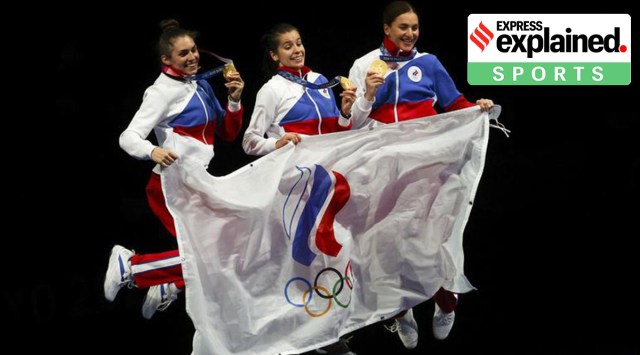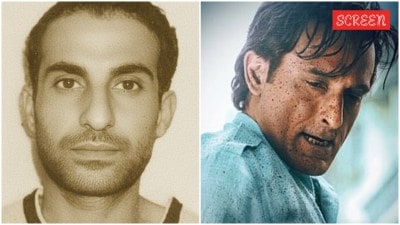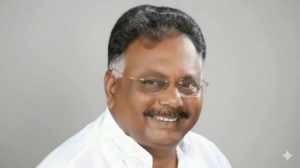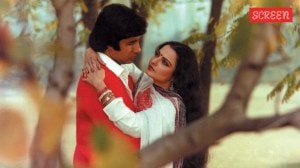Fencer Sofya Velikaya is a two-time Olympic gold medallist in team sabre events, and has three individual silvers. In Tokyo, she was the flag-bearer of the Russian contingent. Paris would have been her fifth Olympics. But the two-time individual world champion and four-time European champion, one of the greatest fencers of this era, won’t be competing at next year’s Games.
For, Velikaya is a Captain with the Russian armed forces. And while there is still hope for some Russian athletes to compete in Paris, the International Olympic Committee (IOC) last week shut the door firmly on those who have links to the country’s military.

In theory, this means nearly half of all Russian athletes at the Tokyo Olympics and almost all medal winners will be ineligible to compete in Paris — unless Russia stops its war in Ukraine.
“With such conditions, there is no chance,” Russian Fencing Federation president Ilgar Mammadov was quoted as saying by TASS. “We have all the leading athletes from CSKA or Dynamo. We have such a system, like the Italians, Hungarians, Germans, Chinese, Poles, Ukrainians — we are all in this system to participate in the Military World Games… They (the IOC) knew…where to hit.”
Sports and the military
Of the 335 athletes who represented Russia in Tokyo, 109 were from the Central Sports Club of the Army, otherwise known as CSKA — and 50 were from the military, according to the International Military Sports Council. Of the 71 medalists, 45 were from CSKA, and the rest were affiliated to the Dynamo Society which, as per its website, works “together with the security and law enforcement agencies of the Russian Federation”.
Of the 32 medals for Russia at the Beijing Winter Olympics last year, 28 were won by athletes from CSKA and Dynamo — 14 each — according to the Centre for Strategic Communications.
These numbers reflect the outsize influence of the armed forces in Russian sports. This has been the pattern since Soviet times — many army-based clubs and societies like CSKA and Dynamo were formed in the 1920s and 1930s.
Story continues below this ad
As is the case in India, athletes recruited in the armed forces under the sports quota do not necessarily have to serve. Their ranks are determined on the basis of achievements on the field, according to CSKA manager Artem Gromov. “Advancing through the ranks rests on one’s athletic achievements. The official rank that these athletes can aspire to (achieve) is Captain…,” Gromov was quoted as saying by tvzvezda.ru in an April 2021 interview.
‘Supporting the war’
According to the IOC, “contracted members of the Russian and Belarusian military or national security agencies are considered to support the war”.
Following its Executive Board meeting last week, the world body issued six-point recommendations to international federations regarding the inclusion of Russian and Belarusian athletes in sporting events. As per the guidelines, individual athletes from these two countries will be able to compete only as neutrals, and teams of athletes from Russia and Belarus will not be considered. “Athletes who actively support the war cannot compete…,” the IOC said. “Athletes who are contracted to the Russian or Belarusian military or national security agencies cannot compete.”
Story continues below this ad
To determine “active support”, they recommended that “public statements, including those made on social media; participation in pro-war demonstrations or events; and the displaying of any symbol supporting the war in Ukraine, for example, the Z symbol” must be taken into consideration. The ‘Z’ has been used as a victory symbol by Russians — last year, gymnast Ivan Kuliak was banned for a year after he stood on the podium at the Gymnastics World Cup in Doha in a shirt that had a ‘Z’ on it.
Some athletes and officials have been spotted at pro-war events. In February, Russian Rhythmic Gymnastics Federation President Irina Viner was seen “directing the rehearsal of a military parade” that was to be staged days before the first anniversary of the invasion, insidethegames.biz reported.
Most-affected sports
Ten Russian gymnasts won medals in Tokyo. Gymnastics fetched the country the most podium finishes, two more than fencing, shooting and wrestling, which got 8 medals each.
Story continues below this ad
These are also sports that have a high influence of athletes affiliated to the armed forces. Wrestler Gadzhimurad Rashidov, the top seed in Tokyo who competes in the 65 kg category, is a Warrant Officer with the forces. Rifle shooter Yulia Zykova is a Lieutenant.
Velikaya, the sabre fencer, told TASS last year: “We went to Tokyo under the flag of the ROC (Russian Olympic Committee). We all the time hoped that the restrictions and pressure that were in our direction would end. But it only grew. Everyone should…perform under their own flag and with their own anthem. Until equal conditions are created, I would not go to the Games.”








































